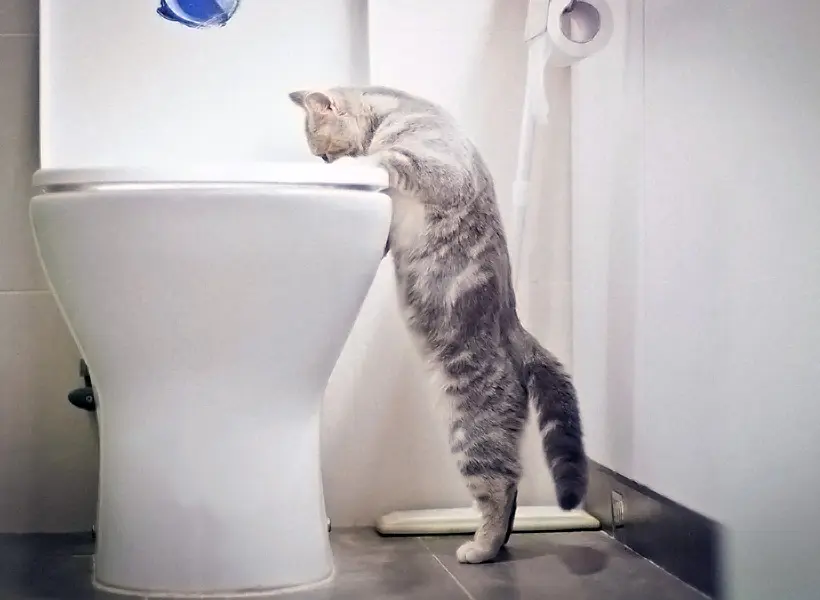Potential Risks of Flushing Cat Poop Down Your Toilet - Tips for Safer Handling
Potential Risks of Flushing Cat Poop Down Your Toilet - Tips for Safer Handling
Blog Article
Are you currently trying to locate resources concerning Can You Flush Cat Poo or Litter Down the Toilet??

Introduction
As pet cat proprietors, it's essential to bear in mind how we throw away our feline friends' waste. While it may seem convenient to purge pet cat poop down the bathroom, this practice can have damaging effects for both the setting and human wellness.
Environmental Impact
Flushing cat poop presents damaging virus and parasites right into the water system, presenting a significant risk to marine ecological communities. These pollutants can negatively affect marine life and compromise water quality.
Wellness Risks
Along with environmental worries, flushing cat waste can additionally posture health and wellness risks to humans. Pet cat feces may include Toxoplasma gondii, a bloodsucker that can cause toxoplasmosis-- a potentially extreme ailment, particularly for expectant ladies and individuals with damaged immune systems.
Alternatives to Flushing
Thankfully, there are more secure and a lot more liable methods to throw away pet cat poop. Take into consideration the adhering to options:
1. Scoop and Dispose in Trash
The most common technique of dealing with feline poop is to scoop it into a biodegradable bag and toss it in the garbage. Make certain to use a devoted litter scoop and take care of the waste without delay.
2. Usage Biodegradable Litter
Opt for eco-friendly feline trash made from materials such as corn or wheat. These litters are environmentally friendly and can be safely taken care of in the garbage.
3. Hide in the Yard
If you have a backyard, take into consideration hiding pet cat waste in a marked location far from vegetable gardens and water sources. Make certain to dig deep adequate to avoid contamination of groundwater.
4. Set Up a Pet Waste Disposal System
Invest in a pet garbage disposal system particularly developed for cat waste. These systems make use of enzymes to break down the waste, minimizing odor and environmental influence.
Final thought
Liable family pet ownership prolongs beyond supplying food and shelter-- it likewise entails appropriate waste monitoring. By refraining from purging cat poop down the bathroom and going with alternative disposal techniques, we can decrease our environmental footprint and secure human wellness.
Why You Should Never Flush Cat Poop Down the Toilet
A rose by any other name might smell as sweet, but not all poop is created equal. Toilets, and our sewage systems, are designed for human excrement, not animal waste. It might seem like it couldn’t hurt to toss cat feces into the loo, but it’s not a good idea to flush cat poop in the toilet.
First and foremost, assuming your cat uses a litter box, any waste is going to have litter on it. And even the smallest amount of litter can wreak havoc on plumbing.
Over time, small amounts build up, filling up your septic system. Most litter sold today is clumping; it is made from a type of clay that hardens when it gets wet. Ever tried to scrape old clumps from the bottom of a litter box? You know just how cement-hard it can get!
Now imagine just a small clump of that stuck in your pipes. A simple de-clogger like Drano isn’t going to cut it. And that means it’s going to cost you big time to fix it.
Parasitic Contamination
Believe it or not, your healthy kitty may be harboring a nasty parasite. Only cats excrete Toxoplasma in their feces. Yet it rarely causes serious health issues in the cats that are infected. Most people will be fine too if infected. Only pregnant women and people with compromised immune systems are at risk. (If you’ve ever heard how women who are expecting are excused from litter cleaning duty, Toxoplasma is why.)
But other animals may have a problem if infected with the parasite. And human water treatment systems aren’t designed to handle it. As a result, the systems don’t remove the parasite before discharging wastewater into local waterways. Fish, shellfish, and other marine life — otters in particular — are susceptible to toxoplasma. If exposed, most will end up with brain damage and many will die.
Depending on the species of fish, they may end up on someone’s fish hook and, ultimately on someone’s dinner plate. If that someone has a chronic illness, they’re at risk.
Skip the Toilet Training
We know there are folks out there who like to toilet train their cats. And we give them props, it takes a lot of work. But thanks to the toxoplasma, it’s not a good idea.

As a passionate person who reads on Don’t flush cat feces down the toilet, I think sharing that segment was necessary. In case you appreciated our blog entry kindly be sure to pass it around. Thank you so much for your time invested reading it.
Request A Quote Report this page